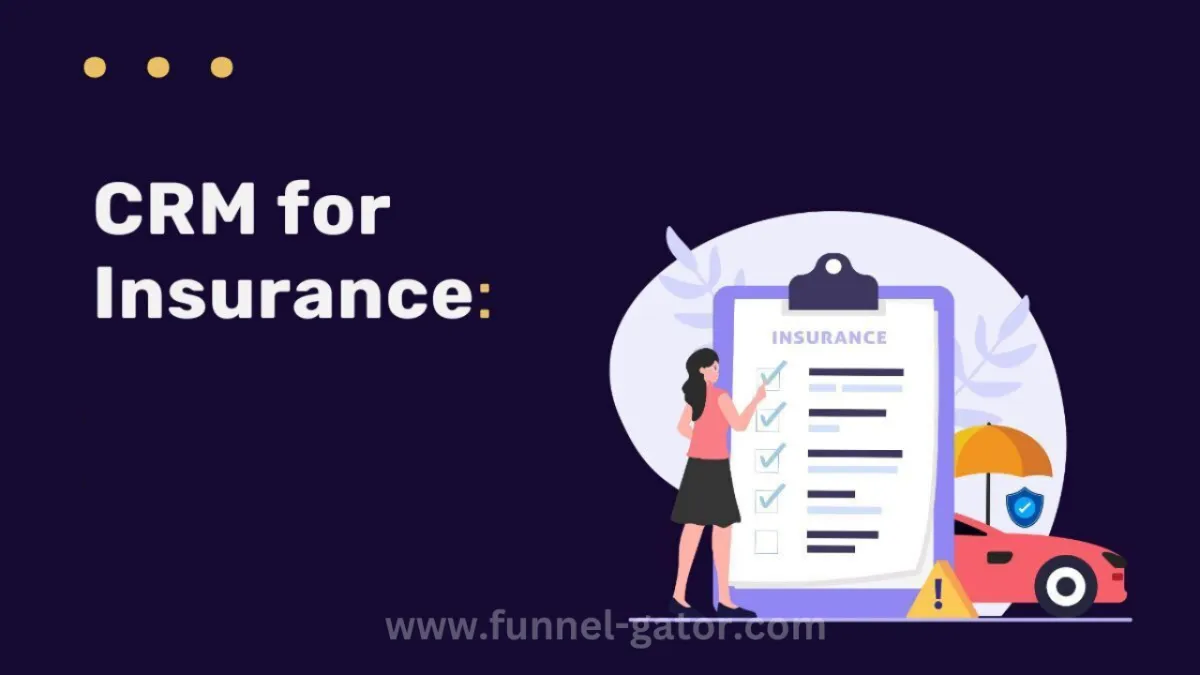
What is CRM Insurance and Why Your Business Needs It
If you work in the insurance industry or are involved in managing customer relationships, you’ve probably heard the term CRM insurance tossed around. But what exactly is it, and why is it important? Whether you’re an insurance agent, broker, or business owner, understanding how CRM (Customer Relationship Management) software tailored for insurance can revolutionize your workflow is essential.
In this article, we’ll walk you through everything you need to know about CRM insurance — what it is, how it works, and why investing in the right CRM tool can be a game changer for your insurance business.
What is CRM Insurance?
At its core, CRM insurance is a specialized version of Customer Relationship Management software designed specifically for the insurance sector. Unlike generic CRMs, this software helps insurance companies manage their clients, policies, claims, and communication all in one place.
Think of it as your digital assistant that keeps track of every interaction you have with a customer — from the first phone call to policy renewal. By organizing this information, it helps agents provide personalized service, follow up promptly, and ultimately close more deals.
For a basic understanding, check out this what is CRM guide.
Why Does the Insurance Industry Need a CRM?
Imagine Sarah, an insurance agent juggling dozens of clients and hundreds of policies. Without a CRM insurance system, Sarah would be buried under sticky notes, spreadsheets, and missed calls. It’s easy to lose track of renewals, forget follow-ups, or miss critical deadlines.
With the right CRM, Sarah can:
Automatically track policy expiration dates
Send reminders for renewals
Store customer documents securely
Access detailed client histories at a glance
Analyze sales performance
This results in happier customers and higher sales. No wonder more insurance businesses are adopting CRM insurance systems to stay competitive.
Key Benefits of Using CRM Insurance Software
Here’s what you stand to gain by implementing a CRM insurance solution:
1. Better Customer Management
Keep all customer data organized in one place. This means no more hunting through files or emails.
2. Streamlined Communication
Send automated emails or texts reminding clients about renewals, payments, or new offers.
3. Improved Sales Tracking
Track leads from inquiry to closure, helping you understand which sales strategies work best.
4. Efficient Claims Processing
Log and monitor claims directly, speeding up resolution and improving customer satisfaction.
5. Enhanced Reporting
Get insights into sales trends, client behavior, and team performance to make smarter decisions.
Step-by-Step Guide to Choosing the Right CRM for Your Insurance Business
Choosing a CRM insurance system isn’t just about picking any software off the shelf. Here’s how to find the right one for you:
Step 1: Identify Your Business Needs
Are you a solo agent or a large firm? Do you need help with policy management, claims, or marketing? List out your must-haves.
Step 2: Research CRM Options
Look for CRMs designed for insurance professionals. Popular ones include Salesforce for Insurance, Zoho CRM, and HubSpot CRM.
Step 3: Check Integration Capabilities
Make sure the CRM can integrate with your existing tools like email, calendar, or accounting software.
Step 4: Test the User Interface
A simple, intuitive interface saves time and reduces errors. Many providers offer free trials — use them!
Step 5: Review Pricing and Support
Consider subscription costs and whether the vendor offers solid customer support and training.
Real-Life Anecdote: How CRM Insurance Transformed a Small Agency
Let me tell you about Tom, who runs a small insurance agency in Texas. Before adopting a CRM, Tom struggled with keeping up with client renewals. He lost a few important clients simply because he forgot to send renewal reminders.
After implementing a CRM insurance system, Tom set up automatic reminders and client follow-up schedules. Within six months, his client retention increased by 30%, and he closed more new policies thanks to better lead tracking. Tom’s story shows how even small agencies can benefit enormously from CRM tools tailored for insurance.
Overcoming Common CRM Challenges in Insurance
Of course, adopting a new system isn’t always easy. Some insurance agents worry about data security, learning curves, or costs. However, most modern CRM insurance platforms offer:
Robust data encryption to keep your client info safe
Easy onboarding with tutorials and customer support
Flexible pricing plans to fit different budgets
By tackling these concerns upfront, you’ll enjoy smoother adoption and better results.
Final Thoughts: Should You Invest in CRM Insurance?
If you want to improve client relationships, increase sales, and reduce administrative headaches, the answer is a resounding yes. A CRM insurance system is more than just software — it’s a strategic investment that helps your insurance business grow efficiently.
To recap:
It centralizes all client and policy information
Automates routine tasks and follow-ups
Provides actionable insights through reporting
Enhances communication and customer satisfaction
If you’re ready to take your insurance business to the next level, start exploring trusted CRM options today. For more guidance, this insurance CRM buying guide offers expert reviews and comparisons.


